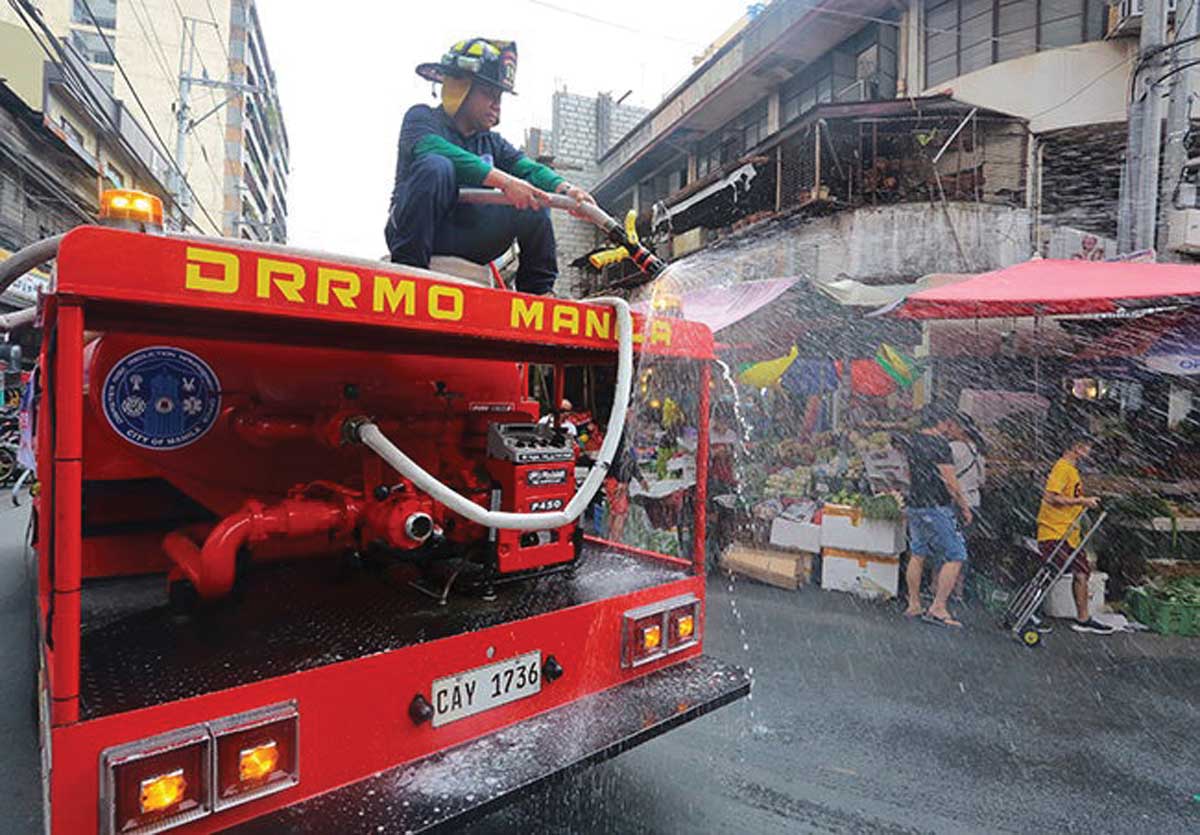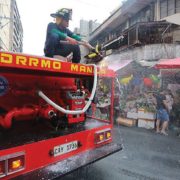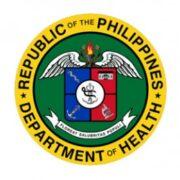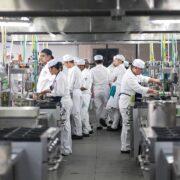International flights to and from Manila not covered
Metro Manila has been placed on a community quarantine for the next 30 days in response to the growing number of cases of the novel coronavirus (COVID-19) in the Philippines, President Rodrigo Duterte announced on Thursday, March 12.

The president’s orders — which will begin on Sunday, March 15 until April 14 — include halting domestic travel to and from the capital region, banning mass gatherings and closing schools for 30 days after the Inter-Agency Task Force on the Emerging Infectious Diseases raised the virus alert system to Code Red Sublevel 2.
“To my countrymen, do not panic. Please do not be stressed to the point that you may not be able to do what you want to do,” he said in a nationally televised address. “You can still do so, but we will have restrictions. There will be conditions because there is a crisis.”
According to Duterte, the crisis is “very, very clear,” urging the public not to trivialize it.
“COVID-19 is spreading throughout the country, including the Philippines. It’s a serious one. Do not belittle it. Do not minimize it, but do not kill yourself with worry,” he said.
As of Friday, the virus has infected at least 52 Filipinos, including five deaths in the country.
The president also quelled fears over the quarantine, clarifying that it is not martial law.
“There is no struggle of power here. There’s no conflict, there’s no war. It’s just a matter of protecting and defending you from COVID-19. That’s about it. It has nothing to do with the power of the military or the power of the police nor my power or these guys beside me. It’s just an issue of protecting public interest and public health,” he said.
“This is not martial law. It is not even extraordinary. What is sought to be solved here is, again, nothing else except to fight the virus and to exact compliance. It would really be better for you to believe [the authorities],” he added.
Travel restrictions
The domestic land, sea and air travel to and from Metro Manila will be suspended from March 15 to April 14, however, Duterte said this is subject to the daily review by the inter-agency task force.
Interior Secretary Eduardo Año clarified that workers living outside Metro Manila but work in the capital region will be allowed to enter as long as they present valid identification cards (IDs).
“I just want to clear this for workers’ sake. The orders state that those living outside Metro Manila but are working here will be allowed to enter as long as they present an ID proving that their work is here,” Año said in a radio interview.
“Supposedly, we are to implement a total lockdown like what was done in other countries like China, but we also have to consider our workers, especially ordinary workers,” he added.
Likewise, patients undergoing medical treatment in Metro Manila are required to present proof, such as a medical certificate, to be allowed entry in the region.
The Philippine National Police (PNP) acting spokesperson, Maj. Gen. Benigno Durana Jr., said that the PNP will man all entrance and exit points in Metro Manila during the quarantine.
He noted, however, the details on where and how many checkpoints will be set up are yet to be finalized.
Cabinet Secretary Karlo Nograles, meanwhile, also assured that the transportation of goods to and from Metro Manila will continue during the quarantine.“Residents of NCR should not worry about [the] supply of food, produce in groceries and retailers,” he said, urging the public to refrain from panic buying and hoarding supplies.
The Light Rail Transits, Metro Rail Transit, and Philippine National Railway will continue to operate during the quarantine, as well.
As for foreign travels, overseas Filipino workers (OFWs) will be allowed to travel to China, except to Hubei province, upon execution of a declaration signifying their knowledge and understanding of the risks involved.
International flights to and from Metro Manila will still be allowed during the quarantine period, but travelers will be subject to “strict quarantine guidelines.” Foreigners coming from countries with confirmed local transmission of COVID-19 will be denied entry to the country except for Filipino citizens, including their foreign spouse and children, if any; holders of Permanent Resident Visas; and holders of 9(e) Diplomat Visas issued by the government.
“If you’re a Filipino citizen and you’re coming from abroad, you will be allowed to come home subject to strict quarantine guidelines,” Nograles said.
Education and work
Duterte said schools across the capital region will be closed until April 12, but reminded students that they are still required to fulfill their academic requirements even if formal classes are no longer held.
The Department of Education said that graduation rites and moving up ceremonies scheduled within April 13 to 17 will be adjusted to a later time in areas in Metro Manila.
The Department of Interior and Local Government (DILG) also told the students to stay at home during the quarantine, saying that those who will be seen in crowded, public places will be sent home.
“If you are seen outside, loitering, not doing anything, just shouting, the police and military will go to you. You will be asked if you have a problem. If you say you don’t, we are just here outside, then, maybe, if you are arrogant, you will be brought to the station for record purposes,” Duterte said.
He added, “Avoid trouble with the law, with anybody. Just, in the meantime, follow. Better just stay home and study.”
During the quarantine, work in the executive branch will be suspended until April 12, but there will be a skeletal workforce to ensure the continuous delivery of services to the public. The legislative branch and the judiciary are encouraged to also adopt the same policy.
Work in the private sector will continue, but companies are being encouraged to offer “flexible work arrangements” to their employees.
Meanwhile, manufacturing, retail, and service establishments are advised to remain in operation during the quarantine period.
Gatherings banned
Planned or spontaneous mass gatherings will also be prohibited during this time.
“Mass gatherings, defined as a planned or spontaneous event, where the number of people attending could strain the planning and response resources of the community hosting the event, shall be prohibited during the said period,” Duterte said.
The Archdiocese of Manila announced a temporary halt on the Holy Mass and public activities from March 14 to March 20.
“I recognize that this may impact many faithful and priests but let us do this with the spirit of sacrifice for the good of all,” said Bishop Broderick Pabillo, apostolic administrator of Manila.






